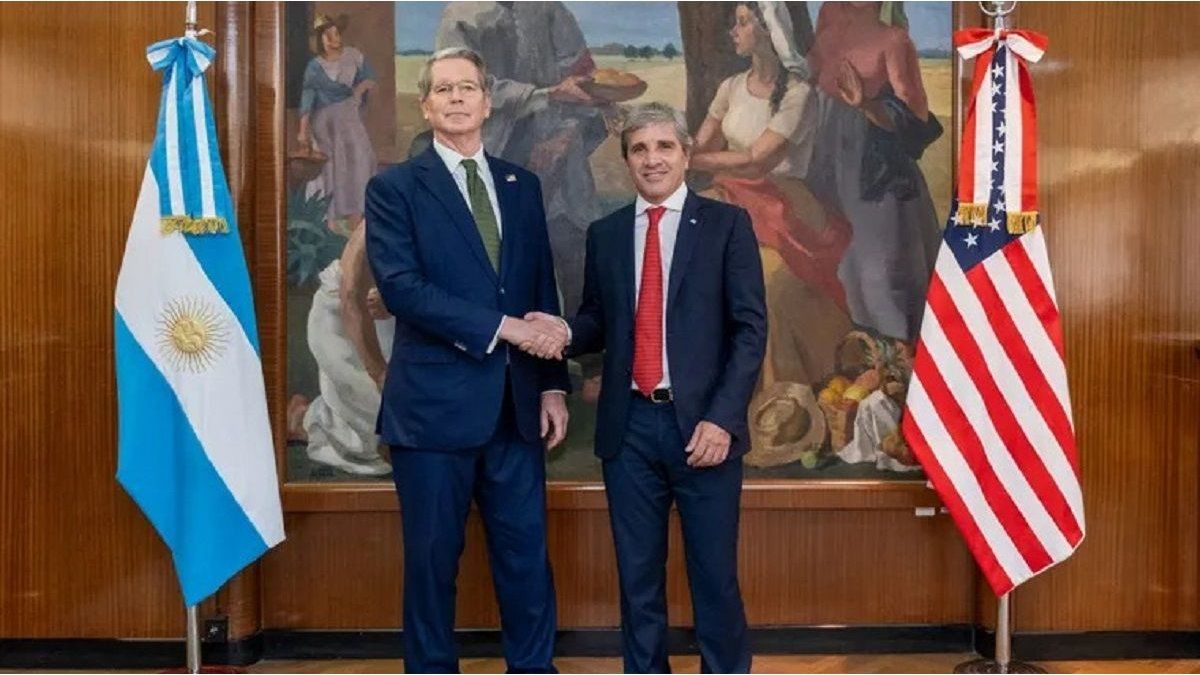The story “Milei sweeps throughout the country” It was not a description, but a self-fulfilling prophecy designed to align political and financial expectations. Because the contemporary vote or candidacy, They behave like speculative assets; It is invested in the candidate with the best prognosis, not necessarily in the one who best represents the interests of the voter. The citizen thus becomes ““moral trader”which arbitrates between candidates like someone who chooses sovereign bonds. In this way, 27.27% of the Register bought Mileibut it is less a political result than a market valuation.
The media as Ministry of Financial Truth
The 2025 election coverage was less journalistic than liturgical. It was a legitimation ceremonywhere the media did not report results but rather they canonized the market.
The “popular mandate” became the “market mandate.” On the night of Sunday, October 26, 2025, while official data showed an abstention of 33%, the television headlines headlined: “Wall Street’s confidence in the new Argentine government”.
The word “trust” – so dear to the financial lexicon – replaced “legitimacy”. In one market democracy, The approval of the people is measured by the reduction in country risknot by electoral participation.
At this point, Michel Callon’s theory on sociology of markets is essential. For Callon, markets do not exist as natural entities, but as sociotechnical networks constructed by discourses, instruments, and actors that define what counts as “value.” In neoliberal Argentina, The sociotechnical network of power is made up of media, banks, consulting companies and technocrats -a circuit that produces financial legitimacy instead of political legitimacy. The press plays the role of symbolic translator between the language of the citizen and that of capital; turns social pain into “necessary adjustment” and collective despair into “maturity”.
Zizek anticipates it precisely; contemporary capitalism no longer needs to promise well-being, but only order and meaning within suffering. The media, when celebrating a triumph with just 27.27% of the registerfulfill exactly that ideological function; give meaning to the announced pain. The adjustment It stops being an imposition and becomes a shared destiny, a kind of “moral journey towards freedom”. Pain is aestheticized; poverty is normalized; resignation becomes a republican virtue.
The invisible director of the Argentine script
Behind the local symbolic machinery, Wall Street watches and directs. The alliance between Argentine technocrats and international financial capital is not a conspiracy theory; is a empirical sociology of globalized elites. Luis “Toto” Caputo – former Deutsche Bank, former JP Morgan, former Axis Asset Management – represents the perfect embodiment of that hybrid; the official who thinks in dollars and co-governs with Scott Bessent in pesos. Milei’s libertarian cabinet looks less like a government than a asset management committee. Each tax decision is evaluated according to its impact on the country riskeach decree is translated into the language of sovereign bonds, and the reaction of the Merval index.
The link between politics and the market has become so intimate that the financial advisor can no longer be distinguished from the minister. Callon would define this as the “coextension of spheres,” where market tools shape policy, and vice versa.
In other words, Argentine democracy was “marketized”; transformed into a financial experiments laboratory under the symbolic tutelage of Washington and the pragmatic gaze of Wall Street investment funds. This subordination is not new, but it is now shamelessly displayed. When 27.27% became a “mandate”, Argentine stocks rose. Wall Street celebrated, not because it believed in Milei, but because it understood that the fiction of consensus would guarantee continuity of adjustment.
The vote became reputational coverage; political insurance for creditors.
The Argentine citizen, reduced to a macroeconomic variable, unknowingly ratified the authority of financial capital over national sovereignty. As Zizek ironically states, “in contemporary capitalism, the true ideology is technical neutrality”. And that neutrality translates, in Argentine politics, as “economic inevitability”. The adjustment is not ideological, they say, but “technical”. But all technique is ideology in disguise. Excel, in the hands of Caputo and his peers, is the new catechism of late neoliberalism.
The consensus of the hopeless: politics as anesthesia
The media-financial machinery that turns 27.27% into a majority is supported by an emotional logic; the administration of fear and collective anesthesia. In a society exhausted by inflation and insecurity, hope is a luxury; what is bought and sold is symbolic tranquility. So, Libertarian discourse – paradoxically – promises less freedom than stability. The citizen does not choose change, but relief in the face of uncertainty. And certain media, by amplifying that emotion, create the illusion of consensus.
The fear of poverty, disorder or chaos acts as a catalyst for the mandate.
Zizek maintains that “When people fear losing everything, they cling even to their executioner.”. 27.27% of the Register voted with the logic of the hostage; If I can’t escape the system, at least I choose the kidnapper who speaks clearly to me. The 33% who abstained from votingon the other hand, embodies another form of rationality; he lucid nihilism, the refusal to continue participating in a representation that became a caricature.
At this point, the fiction of the mandate fulfills its disciplinary function; naturalize the power of the minority and deactivate the power of abstention. The abstentionist is pathologized as “indifferent” or “anomic,” when in reality it may represent the most conscious political subject of all; He who refuses to validate a system that no longer offers an alternative is called “one third of the Register.” In Zizek’s words, “True freedom begins when we no longer have hope.”.
Symbolic colonization: when the story replaces the country
Ultimately, the conversion of 27.27% of the Register, into a mandate, reveals the symbolic colonization of Argentine politics. The country is no longer governed from the Casa Rosada, but from the storytelling. The libertarian narrative -disseminated by the media, repeated by influencers and legitimized by surveys- builds a simulacrum of a meritocratic nation in which no one believes, but everyone repeats. It is the Zizekian “as if” elevated to state policy; act like everything is under control while the system collapses in slow motion.
The republic of the story It feeds on its own mythology. Every press conference is a secular mass; each economic report, a chapter in the religion of suffering. Ideology no longer promises paradise, but managed hell; “yes, you are going to suffer, but this time the pain will make sense”. The sacrifice, before it was religious, today it is financial. The “inevitable adjustment” takes the place that “the will of God” previously had. Wall Street watches, smiles and collects dividends. Argentine hopelessness (33%) – that courage of not believing – becomes its most profitable asset. Because as long as people disbelieve in politics, capital never rests. The only actor that does not abstain is money.
References: Callon, M. (1998). The Laws of the Markets. Blackwell. Sautu, R. (2005). Everything is theory: objectives and methods of social research. Lumiere. Zizek, S. (2017). The Courage of Hopelessness: Chronicles of a Year of Acting Dangerously. Penguin Books.
Doctor in Political Science, on YouTube: @DrPabloTigani, on X: @pablotigani
Source: Ambito
David William is a talented author who has made a name for himself in the world of writing. He is a professional author who writes on a wide range of topics, from general interest to opinion news. David is currently working as a writer at 24 hours worlds where he brings his unique perspective and in-depth research to his articles, making them both informative and engaging.




